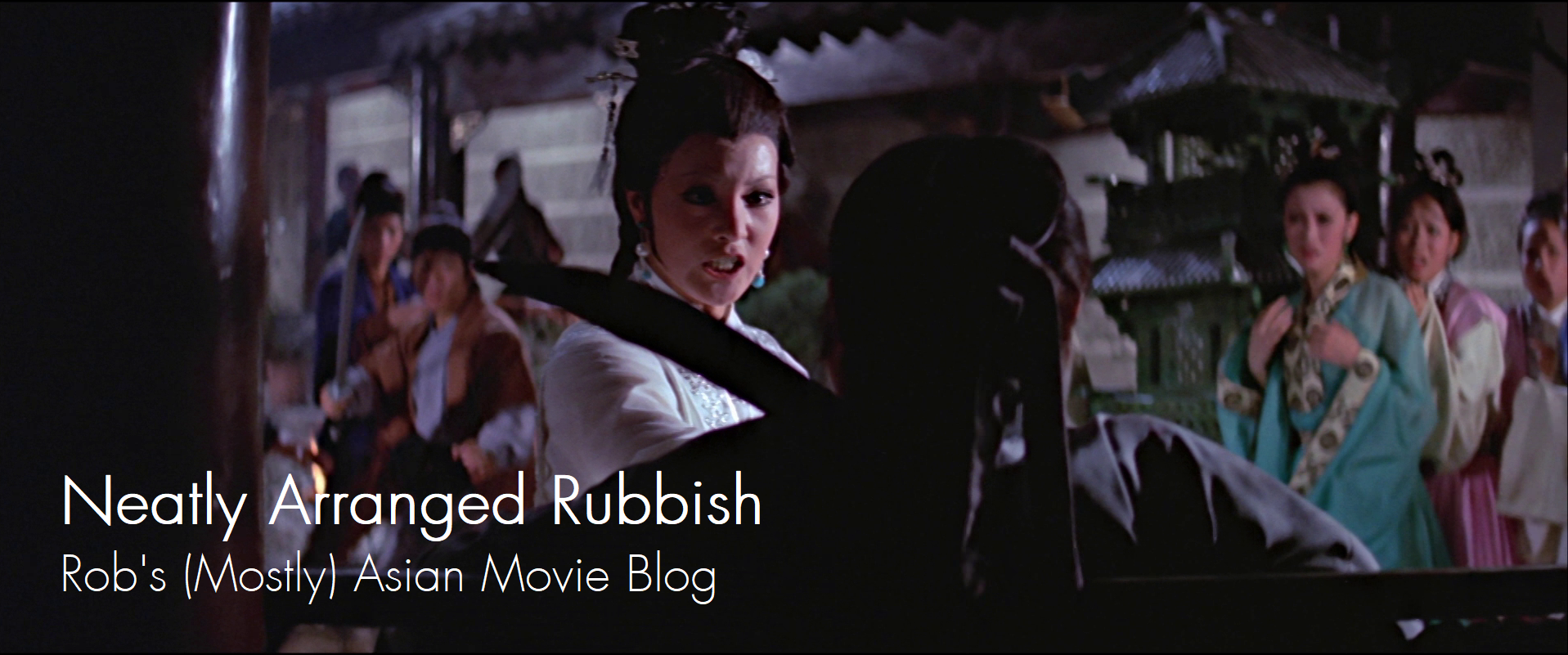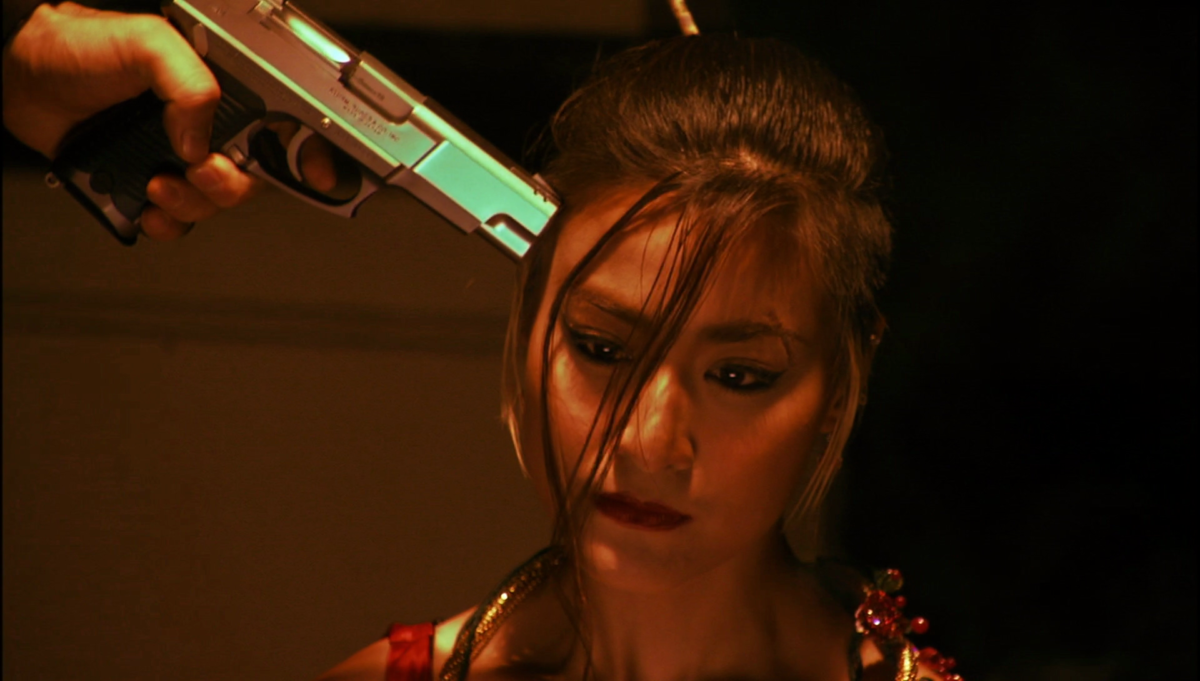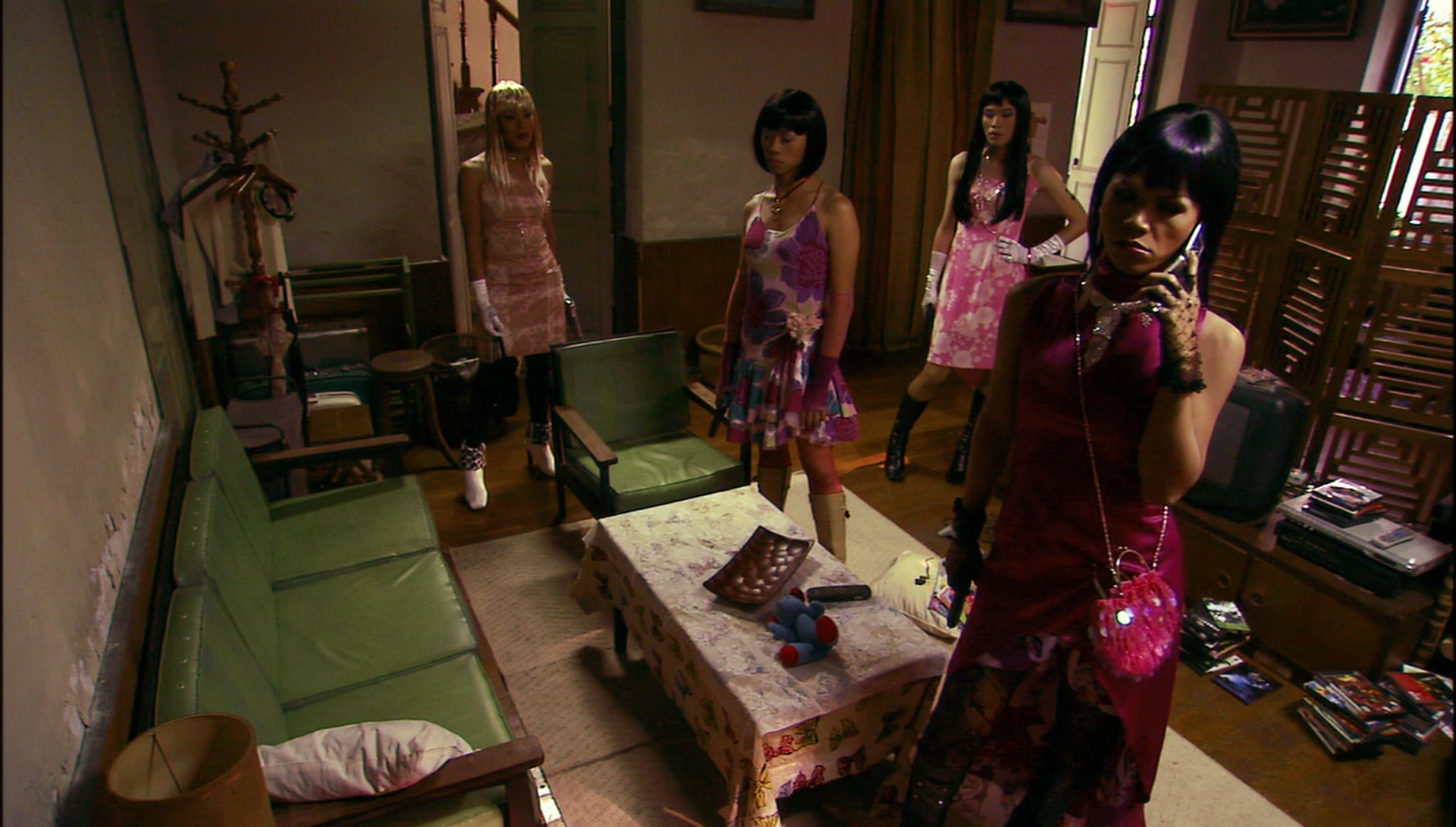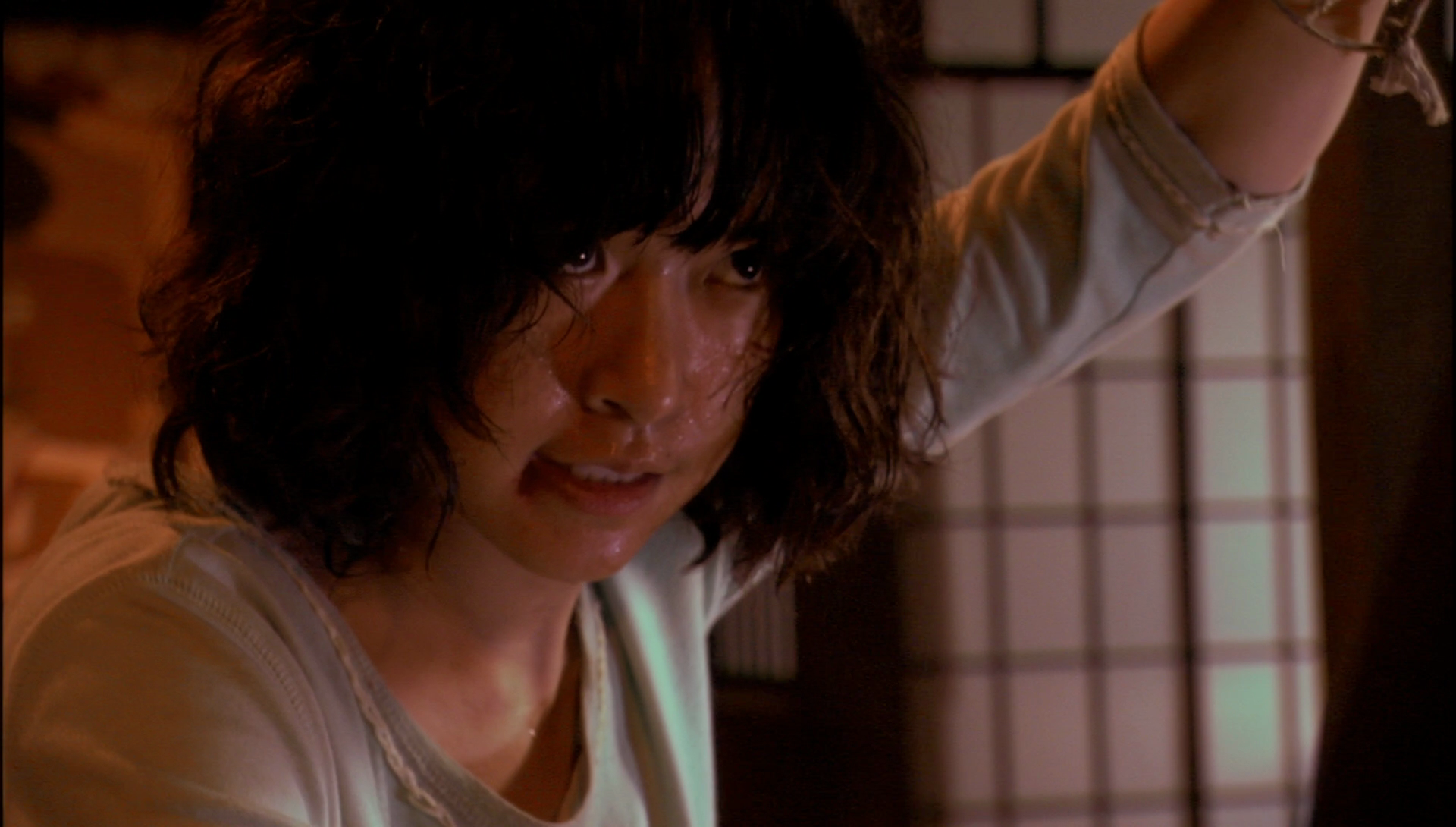Last Updated on October 6, 2020 by rob
When Zin, the girlfriend of gangster boss No 8 becomes pregnant by his rival, a yakuza named Masashi, No 8 warns Zin she must never see Masashi again. But many years later Zin is diagnosed with cancer so her autistic daughter Zen sets out to collect the debts from the local gangsters that could fund her medical treatment. The local bosses don’t want to pay but when Zen cuts a swathe through a veritable battalion of thugs word of her martial arts skills draws the malevolent attention of No 8 so Zin sends an urgent plea for help that brings Masashi back for a bloody showdown with his longstanding enemy.
Despite the brutality this is a really rather charming martial arts action adventure with a fantastically lissom martial arts prodigy in JeeJa Yanin as the heroine whose autism paradoxically renders her both immune to the corruption and nastiness around her yet also a formidable fighting weapon who can’t be stopped. The story is simple enough but the advantage of such simplicity is that writer/director Pinkaew gets a lot of really heartfelt emotion out of the setup. We see Zen’s autistic behaviour manifest itself in ways that will pay off later in the story, as well as her friendship with a chubby kid named Moom who looks after her and mother Zin’s (Ammara Siripong) enduring love even after the latter develops cancer. That emotional investment in the characters pays off to the point that Pinkaew’s somewhat clunky scene setting is much less of an issue than it might otherwise have been and once the action starts we’re fully in Zen’s corner cheering her on.
The film is full of interesting touches such as No 8’s protective posse of transvestite hitwomen or Zen’s fight with a young boy named Thomas whose own autism levels the playing field between them. There’s even something of a fairy tale quality in this saga of a little girl who defeats the wicked tyrants, who does it all for love of her mother and whose autism seems more like a kind of magic that invests her with the special powers she needs to win. I particularly liked an animated dream sequence in which Zen sees the battle between herself and the local gangsters as if it were a video game. Not because it is, but because that’s how Zen’s autism interprets a complex situation. As for the star of all this, what can I say? Young JeeJa has charisma to burn here. Her martial arts expertise is fascinating and often astonishing. But even when not kicking ass she puts across a fragile, childlike vulnerability that has you feeling quite protective toward her.
It’s a sensational combination. The rest of the cast can’t come close to Zen’s charisma but even so they’re not far behind. Siripong as Zen’s cancer stricken mother and the former beauty No 8 can’t forget is very sympathetic (the moment when Zen accidentally knocks off the wig her mother’s wearing to hide the effect of her chemo is a startling moment of vulnerability after how tough we’ve seen her be) and Hiroshi Abe really comes into his own in the third act as he gets down to business with that old standby of all Japanese action heroes, the samurai sword. Only Pongpat Wachirabunjong as No 8 struggles a bit. The script gives him some motivation in the torment he feels over losing his woman to another man (he even shoots his own toe off to show his ex how much he’s hurting at her loss) but once that’s done he settles into generic villain mode and with his long hair and sunglasses seems more a pose than a character but it doesn’t really matter.
The fight scenes are obviously the main attraction here and they don’t disappoint. Director Prachya Pinkaew is clued up enough not to blow his load with the first fight. He’s very careful to start things off simply and then slowly escalate the fights in terms of intensity, complexity and of course – once the samurai swords come unsheathed – gore. It’s all quite thrilling to watch (JeeJa appears to have a body made out of rubber so astonishingly bendy is she) and the climactic fight which begins in a tearoom with an epic slaughter very reminiscent of the House of Blue Leaves fight from Kill Bill and ends up with Zen fighting No 8 and his goons outside on the narrow ledges of buildings several floors up from the street is amusingly inventive in the way it presses into painful service the local architecture.
Unlike so many modern martial arts action films where the actors can’t do the moves – because they’ve not had the training and therefore the director has to disguise it with a lot of fast cutting – JeeJa has apparently been learning martial arts since she was a child (she was 23 when she made Chocolate) and that training shows itself in longer shot lengths than the norm which only serve to enhance one’s appreciation for the astonishing physical agility on display here. It’s all a bit like going back to the heady days of Shaw Bros when the stars had a background in dance and martial arts and could do the moves without needing tricksy cutting to disguise any limitations. In that respect I think after watching the film you’ll agree it’s a case of mission – quite clearly – accomplished.



